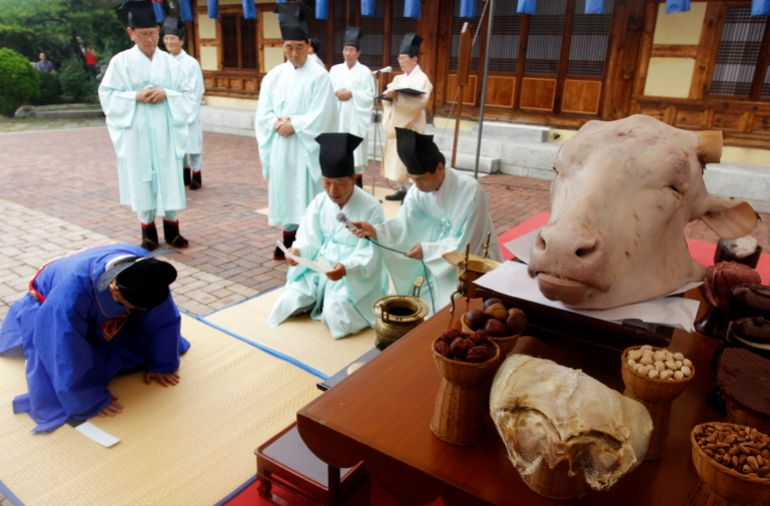Fasting in civilizations and religions... Confucianism “multiplicity of duties” during prayer times

Muslims around the world celebrate the advent of the blessed month of Ramadan, as the holy month witnesses the performance of the obligation of fasting, which is one of the five pillars of Islam. However, fasting is not a special Islamic ritual. Humans have known it since the beginning of creation, and many different civilizations and cultures have known it. It is also an obligation for all... The Abrahamic religions, and some ancient Eastern religions also knew it, including Confucianism.
The Confucian religion is a set of beliefs and principles in Chinese philosophy, developed through the teachings of Confucius, the wise philosopher, who appeared in the sixth century BC, calling for the revival of religious rituals, customs and traditions that the Chinese inherited from their ancestors, adding to them his philosophy and views on morals, transactions and strong behavior.

Confucianism defined lifestyles and social values for its followers. It also provided the basic principles upon which political theories and institutions in China were based. It revolves entirely around morals and ethics, the method of managing government and social relations. It spread to Korea, then to Japan and Vietnam, and became a fixed pillar in the culture of peoples. East Asia.
The ritual of fasting in Confucianism is based on “one meal is enough,” as they follow the worship of the God of Heaven, the sanctification of angels, and the worship of the spirits of fathers and grandfathers. Fasting involves eating and drinking only before prayer times, while priests and monks are satisfied with eating one meal in the afternoon of the new moon and the day of the new moon. Full moon.

What distinguishes this religion from Hinduism is fasting and asceticism for salvation and atheism. However, it is considered part of the ancient Indian civilization as it has a long history of philosophical traditions, but it is not one of the (Vedic) religions, meaning that it does not accept the authority of the Vedas, which is a collection of sacred Hindu books, and does not accept its gods. Nor is the authority of its absolute god (Brahman), because according to Jain teachings, every person can reach the state of absolute perfection after a number of good reincarnations.
Source : websites

